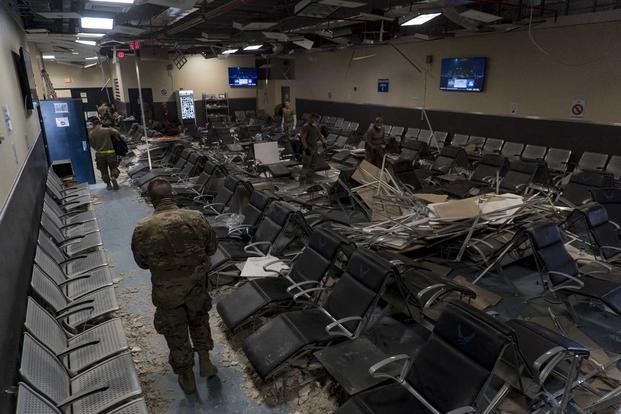This article by Jeff Schogol originally appeared on Task & Purpose, a digital news and culture publication dedicated to military and veterans issues.
Iran may have paid Taliban-linked militants to carry out at least six attacks against U.S. and coalition troops in Afghanistan last year, CNN's Zachary Cohen first reported on Monday.
U.S. intelligence officials believe a foreign government paid "bounties" to the Haqqani network, a terrorist group led by a senior Taliban official, to carry out an attack just outside Bagram Airfield in December that resulted in a lengthy battle, according to CNN, which cited a "Pentagon briefing document."
The document did not name which foreign government allegedly paid the bounties, but CNN was able to independently verify it is Iran, Cohen reported.
Despite the risk that the Iranian payments could lead to further high-profile attacks on U.S. and coalition forces, the National Security Council advised in March that the Trump administration to not respond in order to avoid endangering U.S.-backed efforts to negotiate a peace agreement with the Taliban, CNN reported, citing an internal memo.
Task & Purpose was unable to reach a Taliban spokesman for comment on Monday.
The revelation about the possible Iranian bounties come after earlier media reports that Russia may have offered money to Taliban-linked militants to attack U.S. troops in Afghanistan, including one such attack in April 2019 which left three Marines dead.
Both Russia and the Taliban have denied those allegations.
Defense Department spokesman Army Maj. Rob Lodewick provided Task & Purpose with a statement on Monday that did not directly address whether the U.S. military believes Iran paid money to the Haqqani network to attack U.S. troops in Afghanistan.
"The Department of Defense does not disclose timelines or discussions surrounding internal deliberations and intelligence briefings," Lodewick said. "With that being said, the administration has repeatedly demanded, both publicly and privately, that Iran cease its scourge of malign and destabilizing behavior throughout the Middle East and the world. While the United States, its NATO allies and coalition partners are working to facilitate an end to 19 years of bloodshed, Iran's inimical influence seeks to undermine the Afghan peace process and foster a continuation of violence and instability."
The United States and Iran have been locked in a cold war since the 1979 revolution that ultimately brought Ayatollah Ruhollah Khomeini to power, replacing the U.S.-backed Mohammad Reza Pahlavi.
The 2003 U.S.-led invasion of Iraq brought the conflict between the two countries to boil. The Defense Department believes that Iran is responsible for the deaths of 603 U.S. troops in Iraq from 2003 until 2011.
More recently, the United States launched an airstrike in January that killed Iranian Maj. Gen. Qasem Soleimani, formerly head of the Islamic Revolutionary Guard Corps' elite Quds Force, and Abu Mahdi al-Muhandis, the former commander of Kata'ib Hezbollah, a key Iranian proxy in Iraq.
Both sides came close to war after Iran retaliated by launching ballistic missiles at Iraqi bases hosting U.S. troops. A total of 110 U.S. troops at Al-Asad Air Base were ultimately diagnosed with mild traumatic brain injury.
In April, President Donald Trump tweeted that he had ordered the Navy to "shoot down and destroy any and all Iranian gunboats if they harass our ships at sea" just after Fox & Friends had reported that Islamic Revolutionary Guard Corps Navy boats had engaged in dangerous maneuvers around Navy and Coast Guard vessels in the Persian Gulf.
Secretary of State Mike Pompeo has also publicly blamed Iran for a May 31, 2019 car bomb attack in Kabul that wounded four U.S. service members. The Taliban has claimed responsibility for the attack.
Iran has provided weapons to the Taliban since at least 2007, including small arms, explosives, and rockets, a Pentagon spokeswoman told Task Purpose in November.
At the time, a Taliban spokesman denied that the group was getting any assistance from Iran.
"Propaganda in this regard is a defamation effort that we have always categorically rejected," Zabihullah Mujahid told Task & Purpose in November. "Our struggle is proceeding with the support and backing of our own nation and we do not need the aid of foreign countries."
More articles from Task & Purpose:
• Here is the Democrats’ plan for the military if Biden wins in November
• Civilian airport evacuated after live missile found just sitting inside shipping container
• That one scene in 'Iron Man' that captures the irony of the US military's role in comic book movies











